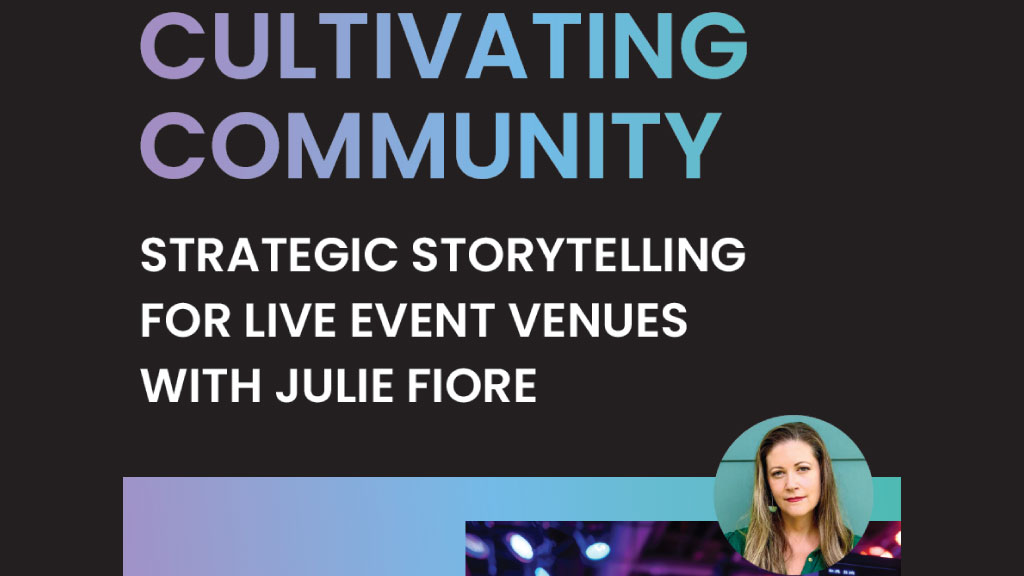Julie Fiore is an innovative marketer and creative strategist with extensive experience in the arts, nonprofits, and small business sectors. She brings a customer-centric approach to her work, specializing in digital creation and community-building through storytelling. Over the past four seasons at an award-winning opera company and thirteen years of supporting artistic startups, Julie has developed a deep understanding of audience engagement, brand storytelling, and cross-functional project management. As Founder and Artistic Director of One Ounce Opera in Austin, Texas, and through her roles with Zanate Ventures and Point One Navigation, Julie continues to help organizations connect with their audiences in meaningful, impactful ways.
Interview
At AudienceView, our purpose is to grow your audience and that’s obviously something you know a lot about. Let’s dive into the topic of creating marketing messages that resonate with audiences. How do you approach this challenge?
The foundation of any effective marketing message is a deep understanding of your audience. You have to start by asking critical questions:
“How do we bring more people in the door?” “How do we get subscribers to come back?” and “Who else in our community might be interested in our programming?”
These questions help identify the core needs and interests of your audience. For instance, if your audience values unique cultural experiences or family-friendly events, your messaging should highlight these aspects clearly.
How do you ensure that your marketing messages are focused on the benefits for the consumers?
It’s all about clarity and relevance. Consumers are looking for value – what makes your event or service unique? I always emphasize the need to communicate the benefits upfront. For example, I often say,
“Focus on the value your event or service brings to the consumer.
What unique experiences or benefits do you offer that they can’t find elsewhere? This should be front and center in your messaging. By clearly articulating what attendees will gain, whether it’s a unique experience, educational value, or simply a great time, you make it easier for them to decide to engage with you.
Community seems to be a recurring theme in your approach. Can you expand on the role of community in your marketing strategies?
Community is at the heart of everything we do. Building a strong community around your brand or event is not just about marketing; it’s about creating a sense of belonging and shared experience. Engaging with the local community is crucial. This involves understanding the local culture and interests, and sometimes even supporting local causes. Deciding to take a risk on programming that’s outside the comfort zone can attract new demographics, but it’s essential to communicate the benefits clearly.
What practical steps can organizations take to foster this sense of community?
It’s about engagement and authenticity. Encourage your audience to participate and give them platforms to connect, whether through social media, community events, or forums. Your messaging should also be consistent and aligned with the community’s values. For example, if sustainability is important to your community, highlighting your efforts in this area can strengthen your bond with your audience. It’s crucial to know what your audience is looking for and how you can meet those needs. When your marketing messages align with the interests and desires of your consumers, you’re more likely to see engagement and conversion.
That’s insightful. How can organizations measure the success of their community-building efforts?
Success in community building can be measured in various ways, from engagement metrics like social media interactions and event attendance to more qualitative feedback like customer testimonials and community sentiment. It’s also important to monitor how well your messages resonate by tracking conversion rates and audience retention.
Ultimately, the strength of your community can often be seen in the loyalty and advocacy of your audience.
Finally, what advice would you give to organizations looking to improve their marketing messaging and build stronger communities?
My advice would be to always start with your audience. Understand their needs, interests, and values, and ensure that your messaging reflects these elements authentically. It’s not just about pushing a product or event; it’s about engaging in a meaningful dialogue with your community. Your messaging should create a sense of belonging and community, encouraging people to participate and connect with one another. Focus on building relationships, and loyalty and success will follow.
Wath the full webinar here

